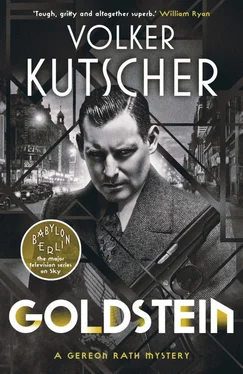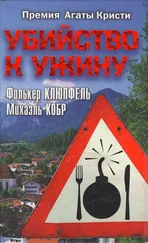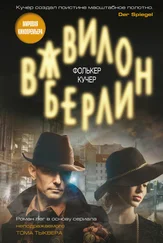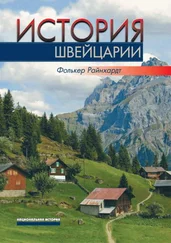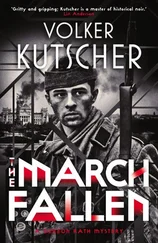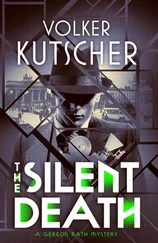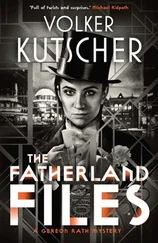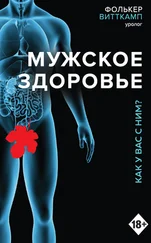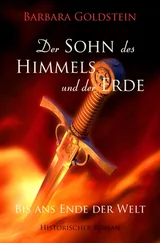‘You didn’t see him anywhere?’
‘Where would I have seen him?’
‘Or do him a good turn?’
The face behind the black beard was motionless. Joseph Flegenheimer held himself in check.
‘Be that as it may,’ Rath said. ‘Call me if he gets in touch.’ He handed Flegenheimer his card. ‘I won’t keep you any longer.’
With that he left the mourners, reclaiming Kirie in the hall and descending the steps onto Berchtesgadener Strasse. In the Buick he lit a cigarette and waited.
About quarter of an hour later, Joseph Flegenheimer stepped out onto the street. Rath waited until he had reached Wartburgstrasse and was no longer in view, before starting the engine.
It wasn’t hard to keep the black figure in sight. Halting at the Wartburgstrasse junction, he waited until Flegenheimer reached Martin-Luther-Strasse. There was a tram line here, but Flegenheimer continued down the street towards the Schöneberger town hall. Rath watched while he crossed Rudolf-Wilde-Platz and continued down Mühlenstrasse. Following as slowly as possible, he caught up outside a large Catholic church which fitted seamlessly between the house fronts, like so many churches in this city. He was looking for a parking spot when Flegenheimer did something unexpected.
Dressed entirely in the garb of his forefathers, he opened one of the church doors and went inside.
Rath pulled over. What could this mean? He didn’t want to follow him into the building, as Flegenheimer might grow suspicious. Even so, he’d have liked to know what business an orthodox Jew had in a church.
He had been hoping that Flegenheimer would lead him to whatever flophouse Abraham Goldstein was staying in, but apparently it wouldn’t be that simple. All the same, he was certain it was Flegenheimer who had collected his cousin’s things from the hotel in Tieckstrasse and settled the bill.
He remained in the car to smoke an Overstolz, but Flegenheimer didn’t reappear. At length he threw the cigarette out of the window and restarted the engine. It was already late. He had to keep moving if he didn’t want to miss his appointment with Marlow. He wrote down the name of the church: Saint Norbert’s.
The room had no windows and was seldom properly aired, hence the musty smell. A uniform officer led them past a long line of shelves. It looked like an arms dealer’s warehouse, an arms dealer with a sideline in bric a brac: pistols and weapons of every design, knives, sabres, knuckledusters, carpets, candlesticks, oil paintings, record players and even a welded safety deposit box.
Charly held her hand over her nose and watched Lange as he examined a light-grey suit covered in congealed blood. Against their original plan, she had returned to the station out of sheer curiosity. Lange had not, in fact, forced the wooden casket open, neither in the flat nor in the car. He really was a model of Prussian rectitude. Perhaps her father had been right when he claimed that Hanoverians were more Prussian than the Prussians themselves.
They hadn’t spoken much on the return journey, but both were now certain that Alexandra Reinhold was no longer their prime suspect. Lange appeared just as relieved as Charly, not that it made the case any simpler. The cop in Kuschke’s flat must have been the same one Charly had seen in the Hansaviertel, and he must have something to do with the murder. What a nightmare: a murdering policeman, killed, himself, by a police officer. So far the dead man in the Hansaviertel hadn’t been accorded many column inches. The Castle had kept things under wraps, above all the man’s identity, deciding to release the information in stages, ideally in conjunction with reports on the state of the investigation.
The problem was that their findings had shed an increasingly disturbing light on matters.
After Charly failed to crack the box’s lock with a paperclip, they went to the evidence room. Lange fished a key out of Kuschke’s wallet and raised it triumphantly into the air.
Charly handed him the box: a fit.
At first she couldn’t make head or tail of the sheet of paper Lange took out of the box: a passport photo showing Jochen Kuschke in uniform, albeit not the uniform of a sergeant major; rather one that, for police, was strictly forbidden. Even before she read what was printed next to the photograph and saw the stamped symbol, she knew this wasn’t something they could give to the press.
Lange whistled through his teeth.
It was a membership card, confirming that Jochen Kuschke had been a member of the Berlin-Brandenburg SA-Gau since 12th December 1930, and held the rank of Oberscharführer. It was signed by Walther Stennes, the former Berlin SA Chief who had since been expelled by Hitler.
Grzesinski and Weiss would do everything in their power to ensure the press didn’t get wind of this. Who knew what would happen if word got out that, despite the strict ban issued by both the Interior Ministry and police commissioner, a Berlin police officer had not only become a member of the SA but allowed himself to be photographed in their uniform.
They didn’t know what to make of the other items, except that Kuschke clearly felt they were as worthy of protection as his SA membership: a black patch with a white hand stitched on, a similarly designed lapel badge and a few photos of Kuschke with other men, none of whom were in police or SA uniform, but plainclothes.
They packed everything up and were about to leave when Kronberg from ED peered around the corner. ‘There you are,’ he said to Lange. ‘Fräulein Steiner said I’d find you here.’
The ‘you’ referred to Lange alone. He didn’t so much as glance at Charly, but reached into an envelope and placed a photograph of a bloody knife next to the wooden casket.
‘The knife used to murder Kuschke,’ Charly said. ‘Have you found anything?’
‘It’s a dagger,’ Kronberg corrected, giving Charly a condescending glance. ‘A trench dagger, to be exact. Made for trench fighters in the war. Every veteran owns one.’
‘So?’ Lange said.
‘So, it can be difficult to identify the owner of such a weapon. But… in this case, I believe we have managed.’
‘Yes?’
‘The dead SA man in Humboldthain was stabbed to death with a weapon just like this, his own. Until now, the weapon’s been missing without trace, but if you ask me…’ Kronberg gestured towards the photograph. ‘This is it here.’
Johann Marlow held a bottle of chilled white wine. F.W. Borchardt was one of the most exclusive gourmet establishments in Berlin, where fine cuisine was fused with an impeccable wine cellar. Marlow had taken a table in a booth where they could talk undisturbed. Liang was there, and they had laid a place for Rath too. As much as he despised Johann Marlow’s attention, he was in no position to refuse. After all, what could he say? No thanks, I’ve already eaten? His stomach was making far too much noise for that. He hadn’t taken any food on board since wolfing down a meagre lunch at Stettiner Bahnhof with Gräf and Tornow; Kirie likewise. He was almost refused entry with the dog but Liang, waiting by the door, handed a note to the man at reception, and soon a boy emerged to take her. Kirie went willingly, instinct telling her there was food on offer.
‘Do sit down,’ Marlow said. ‘Wine?’
Rath nodded. Liang poured.
‘I’m sorry about Lenz,’ Rath said. ‘Perhaps it will comfort you to know that Rudi the Rat was found dead at a rubbish dump.’
Marlow slammed his fist against the table. ‘Damn it,’ he said. ‘Why didn’t you tell me that Lenz was dead? Why do I have to hear from Teuber about your boys showing up in Amor-Diele , shouting about how Hugo’s mortal remains have been fished out of the Mühlendamm Lock?’
Читать дальше
